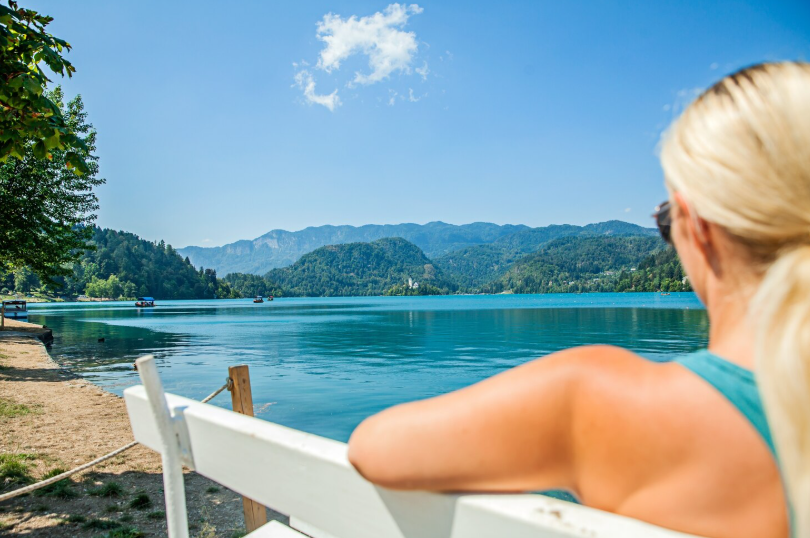
by Dulce Navarro | Jan 27, 2026 | Countries, Europe, Experiences, Landscapes, Lifestyle, Travel
Where to Travel in Europe When You’ve Already Been Everywhere
For seasoned travelers, Europe can begin to feel familiar. Paris, Rome, London, and Barcelona have been admired,
photographed, and revisited. The museums are known by heart, the neighborhoods feel navigable, and the sense of
discovery that once defined travel can feel elusive. Yet Europe remains endlessly layered. Beyond the well-trodden
capitals lies a quieter, more nuanced continent — one that rewards curiosity, patience, and a willingness to look
past the obvious.
For those who feel they have “already been everywhere,” the next chapter of European travel is not about ticking
boxes, but about depth, texture, and refinement. These destinations offer cultural richness, understated luxury,
and the pleasure of discovery without spectacle.
The Lofoten Islands, Norway
Rising dramatically from the Arctic Circle, the Lofoten Islands feel almost unreal. Sharp mountain peaks plunge
directly into icy fjords, fishing villages sit quietly on stilts above the water, and the light shifts constantly,
painting the landscape in soft blues and silvers.
This is a destination for travelers who appreciate nature as an experience rather than an activity checklist.
Stay in a restored rorbu (traditional fisherman’s cabin), explore coastal roads at a leisurely pace, and savor
local seafood prepared with restraint and precision. In winter, the Northern Lights offer a private spectacle;
in summer, the midnight sun creates endless, golden evenings.
Matera, Italy
While Italy is one of Europe’s most visited countries, Matera remains surprisingly underexplored. Known for its
ancient cave dwellings, or Sassi, Matera is one of the oldest continuously inhabited cities in the world.
Its architecture feels carved rather than constructed, blending seamlessly into the surrounding rock.
Today, the city balances history with quiet sophistication. Boutique hotels built into caves offer refined comfort,
while candlelit restaurants reinterpret southern Italian cuisine with elegance. Walking through Matera at dusk,
when the city glows softly against the stone, feels like stepping into another era.
Asturias, Spain
For travelers who know Spain well, Asturias offers a refreshing alternative to Andalusia or the Balearic Islands.
Located along Spain’s northern coast, this region combines rugged mountains, green valleys, and dramatic Atlantic
cliffs.
Asturias is defined by authenticity. Sidrerías serve local cider poured with theatrical flair, fishing villages
remain refreshingly unpolished, and hiking trails lead from forested hills to empty beaches. The cuisine is hearty
yet refined, and the pace of life encourages long meals and unhurried exploration.
The Azores, Portugal
Floating in the middle of the Atlantic, the Azores feel worlds away from mainland Europe. Volcanic lakes, thermal
pools, and lush landscapes define this archipelago, offering a sense of isolation that is increasingly rare.
São Miguel, the largest island, is an ideal starting point. Enjoy natural hot springs, tea plantations, and
crater lakes, all within short drives. Luxury here is understated — defined by space, silence, and immersion in
nature rather than excess.
Gdańsk, Poland
Gdańsk surprises even experienced European travelers. With its colorful facades, maritime history, and resilient
spirit, the city offers both beauty and substance. Rebuilt meticulously after World War II, its Old Town is a
testament to preservation and pride.
Beyond architecture, Gdańsk is culturally rich and intellectually engaging. Museums, galleries, and waterfront
promenades invite reflection, while nearby beaches and forests provide balance. It is a destination that feels
thoughtful rather than performative.
Comporta, Portugal
For those drawn to discreet luxury, Comporta has become a quiet favorite. Located south of Lisbon, this coastal
region is defined by rice fields, pine forests, and unspoiled beaches.
Architecture here is minimalist and intentional, blending into the landscape. Days are spent barefoot, moving
between beach, café, and private villa. Comporta attracts creatives and travelers who value privacy, simplicity,
and natural beauty over spectacle.
Reimagining European Travel
Traveling Europe when you have already “seen it all” requires a shift in mindset. The most rewarding destinations
are often those that do not demand attention, but earn it slowly. They reveal themselves through detail, rhythm,
and atmosphere rather than landmarks.
These places remind us that travel is not about novelty alone, but about connection — to history, landscape, and
ways of life that resist haste. Europe remains endlessly compelling for those willing to look beyond the obvious.
Conclusion
Even for the most experienced traveler, Europe still holds quiet corners waiting to be explored. By choosing
destinations that prioritize authenticity, elegance, and depth, travel becomes less about repetition and more
about renewal.
Stay Connected for More Travel and Lifestyle Inspiration.
For more insights into travel, culture, and lifestyle tips, follow me on Instagram @salvadorordorica. If you’re seeking professional translation and localization services to enhance your global ventures, visit The Spanish Group — your trusted partner in bridging cultures worldwide.

by Dulce Navarro | Jan 26, 2026 | Countries, Europe, Experiences, Landscapes, Lifestyle, Luxury, Travel
The Luxury of Silence: Europe’s Most Peaceful Destinations
Modern life is defined by constant motion, noise, and digital interruption. As a result, silence has become one of the most coveted luxuries in contemporary travel. For discerning travelers, true refinement is no longer measured by how much one sees or does, but by the quality of space, stillness, and clarity a journey provides.
Across Europe, beyond the crowded capitals and overexposed resorts, there are destinations where tranquility is woven into daily life. These places offer not escape, but recalibration — environments that encourage reflection, meaningful connection, and a deeper appreciation of culture and landscape.
The Swiss Engadin Valley: Precision, Nature, and Quiet Excellence
The Engadin Valley in eastern Switzerland exemplifies silence shaped by order and nature. High-altitude lakes, pine forests, and expansive alpine skies create an atmosphere of calm that feels intentional rather than remote.
Luxury in the Engadin is expressed through discretion and balance. Historic grand hotels coexist with minimalist wellness retreats, offering refined service without intrusion. Days unfold through gentle walks, thermal baths, and uninterrupted views, allowing travelers to slow their internal rhythm.
This region appeals to those who value precision, wellness, and intellectual quiet.
Alentejo, Portugal: Where Space Creates Stillness
Alentejo remains one of Europe’s least populated regions, defined by vast plains, cork oak forests, and whitewashed villages set against endless horizons. The sense of space alone creates silence — a rare luxury in itself.
Accommodations are often restored estates and understated rural retreats that prioritize authenticity over spectacle. Meals are unhurried, rooted in local tradition, and conversations stretch easily into the evening. In Alentejo, silence becomes a natural companion to daily life.
This destination rewards travelers seeking emotional calm and cultural depth.
Lapland, Finland: Silence as a Way of Life
In Finnish Lapland, silence is not a novelty but a cultural value. Vast snow-covered landscapes, forests, and frozen lakes absorb sound, creating a profound sense of stillness.
Luxury here is experiential and elemental. Glass-roofed lodges, private saunas, and guided nature experiences allow guests to observe rather than consume the environment. Whether under the midnight sun or the northern lights, the quiet feels expansive and grounding.
Lapland appeals to travelers seeking clarity, introspection, and a connection to nature at its purest.
The Cyclades Beyond Mykonos: Greece in Its Quietest Form
While some Greek islands are synonymous with nightlife and crowds, others remain dedicated to simplicity and calm. Islands such as Folegandros, Amorgos, and Serifos offer a slower, more contemplative version of Mediterranean life.
Here, luxury is defined by light, air, and restraint. Whitewashed architecture, modest boutique hotels, and long seaside meals shape days that feel unstructured yet deeply satisfying. The absence of noise allows the landscape and culture to take center stage.
These islands attract travelers who appreciate beauty without excess.
The French Jura: An Undiscovered Sanctuary
Nestled between Burgundy and Switzerland, the Jura Mountains remain largely untouched by mass tourism. Forests, lakes, and vineyards create a serene environment shaped by tradition and self-sufficiency.
The region’s luxury lies in its authenticity. Small inns, refined countryside hotels, and a culinary culture centered on craftsmanship foster a sense of belonging rather than display. Silence here is gentle, punctuated only by nature and conversation.
Jura is ideal for travelers who value discretion and discovery.
Why Silence Has Become the Ultimate Expression of Luxury
In an age of overstimulation, silence offers something increasingly rare: mental space. Peaceful destinations allow travelers to engage more fully with their surroundings, their companions, and themselves.
Luxury is no longer about abundance, but about intention — choosing environments that support well-being, clarity, and meaningful experience. Europe’s most tranquil destinations embody this evolution.
Conclusion
The luxury of silence is not an absence of life, but a return to what matters. Europe’s most peaceful destinations offer an opportunity to travel with awareness, depth, and grace.
For those willing to slow down, silence becomes not only restorative, but transformative.
Stay Connected for More Travel and Lifestyle Inspiration.
For more insights into travel, culture, and lifestyle tips, follow me on Instagram @salvadorordorica. If you’re seeking professional translation and localization services to enhance your global ventures, visit The Spanish Group — your trusted partner in bridging cultures worldwide.

by Dulce Navarro | Jan 26, 2026 | Europe, Experiences, Landscapes, Lifestyle, Travel
Traveling Europe Well: A Guide to Taste, Timing, and Tranquility
Europe has long been synonymous with culture, history, and refinement. Yet traveling Europe well — truly well — requires more than simply moving between iconic cities or checking landmarks off a list. For the modern, discerning traveler, the greatest rewards come from thoughtful planning, cultural sensitivity, and an appreciation for timing and pace.
Traveling with taste, timing, and tranquility allows Europe to unfold in a more meaningful way. It transforms travel from consumption into experience, offering deeper connections to place, people, and tradition.
Taste: Cultivating Cultural and Culinary Awareness
Taste in European travel extends far beyond fine dining, though cuisine certainly plays a central role. True taste is reflected in how one engages with local customs, supports regional craftsmanship, and seeks authenticity over spectacle.
Europe’s culinary traditions are deeply regional. From northern Italy’s emphasis on simplicity and seasonal ingredients to Spain’s social dining culture and France’s reverence for technique, food offers insight into local values and history. Dining well often means eating where locals do, respecting meal times, and understanding that quality often outweighs novelty.
Cultural taste also means dressing appropriately, learning basic language courtesies, and approaching traditions with humility and curiosity. These small gestures foster genuine interactions and open doors to richer experiences.
Timing: When You Travel Matters as Much as Where
One of the most overlooked elements of successful European travel is timing. Europe’s most celebrated destinations change dramatically depending on the season, the day of the week, and even the time of day.
Shoulder seasons — late spring and early autumn — often provide the ideal balance of favorable weather, cultural vibrancy, and reduced crowds. Cities like Paris, Rome, and Barcelona reveal a calmer, more livable side outside peak summer months, while countryside regions come alive with harvests, festivals, and local traditions.
Timing also applies on a micro level. Visiting museums early in the morning, dining later in the evening, and planning quieter afternoons can dramatically enhance the travel experience. Allowing time for spontaneity rather than overscheduling creates space for discovery.
Tranquility: Redefining Luxury Through Pace
In a world increasingly driven by speed and efficiency, tranquility has become one of the most valuable forms of luxury. Traveling Europe well means resisting the urge to see everything and instead allowing places to be experienced fully.
Tranquility can be found in smaller cities, rural regions, and neighborhoods away from tourist centers. Staying longer in one place, choosing accommodations that emphasize comfort and character, and prioritizing well-being over constant movement all contribute to a more rewarding journey.
Whether it is a slow morning in a Viennese café, a countryside walk in Provence, or an unhurried afternoon along the Amalfi Coast, these moments often become the most memorable.
Choosing Destinations with Intention
Europe’s diversity allows travelers to tailor experiences to their personal interests. Art lovers may gravitate toward Florence or Vienna, while nature enthusiasts may prefer the Alps, the Scottish Highlands, or the coastlines of Portugal and Croatia.
Traveling well involves selecting destinations that align with one’s values and travel goals. It also means recognizing that lesser-known regions often provide more authentic, less crowded experiences without compromising on quality or comfort.
Intentional travel encourages curiosity and respect — qualities that deepen cultural understanding and elevate the overall experience.
The Role of Preparation and Communication
Preparation is essential to traveling Europe well. Understanding cultural norms, transportation systems, and local expectations helps avoid unnecessary stress and fosters smoother interactions.
Effective communication — whether through language skills, professional translation services, or cultural awareness — enhances both business and leisure travel. It allows travelers to navigate unfamiliar environments confidently and respectfully, particularly in multilingual settings.
In an increasingly interconnected world, cultural fluency is no longer optional; it is a hallmark of sophisticated global engagement.
Travel as a Reflection of Values
How we travel often reflects what we value. Traveling Europe well prioritizes sustainability, respect for local communities, and meaningful experiences over excess and haste.
This approach not only enriches the traveler but also contributes positively to the destinations visited. By supporting local businesses, honoring traditions, and traveling mindfully, one participates in a more responsible and rewarding form of tourism.
Conclusion
Traveling Europe well is not about doing more — it is about doing better. By focusing on taste, timing, and tranquility, travelers unlock a deeper, more elegant experience of the continent.
Europe offers endless possibilities, but its true beauty reveals itself to those willing to slow down, observe, and engage with intention.
Stay Connected for More Travel and Lifestyle Inspiration.
For more insights into travel, culture, and lifestyle tips, follow me on Instagram @salvadorordorica. If you’re seeking professional translation and localization services to enhance your global ventures, visit The Spanish Group — your trusted partner in bridging cultures worldwide.

by Dulce Navarro | Jan 26, 2026 | Europe, Experiences, Lifestyle, Luxury, Travel
France Beyond Paris: Regions That Reward Curious Luxury Travelers
Paris will always hold a magnetic allure. Its architecture, cuisine, and cultural legacy continue to define France in the global imagination. Yet for the curious luxury traveler — one who values depth, authenticity, and refinement — France reveals its true richness far beyond the capital. Across the country, distinct regions offer immersive experiences that blend heritage, gastronomy, natural beauty, and discreet luxury, rewarding those willing to explore with intention.
Traveling beyond Paris is not about abandoning sophistication; it is about redefining it. These regions invite slower travel, meaningful encounters, and a deeper understanding of French culture — all while maintaining the standards of comfort and elegance discerning travelers expect.
Burgundy: Where Time, Terroir, and Tradition Converge
Burgundy is a region that speaks softly but with extraordinary authority. Known globally for its vineyards, it offers far more than wine tasting. Here, luxury is expressed through precision, history, and an intimate connection to the land. Rolling hills dotted with stone villages, centuries-old monasteries, and family-owned domaines create an atmosphere that feels both grounded and rarefied.
Travelers can enjoy private vineyard tours, cellar tastings led by winemakers themselves, and stays in historic châteaux converted into elegant boutique hotels. Gastronomy in Burgundy is deeply rooted in tradition — think slow-braised meats, refined sauces, and local cheeses — often paired in Michelin-starred settings that value craftsmanship over spectacle.
Burgundy rewards those who appreciate patience, nuance, and stories passed down through generations.
Provence: A Refined Take on Sun-Drenched Living
Provence has long attracted artists, writers, and travelers seeking light, beauty, and inspiration. Yet beyond its lavender fields and postcard-perfect villages lies a refined luxury defined by balance and lifestyle rather than excess.
From the Luberon to the Alpilles, Provence offers exceptional private estates, vineyard retreats, and design-forward hotels that blend seamlessly into the landscape. Days unfold at an unhurried pace: morning markets, leisurely lunches under olive trees, afternoons exploring Roman ruins or contemporary art foundations, and evenings accompanied by rosé and conversation.
The region’s culinary identity emphasizes freshness and seasonality, with many luxury properties sourcing ingredients directly from nearby farms. Provence appeals to travelers who value wellness, beauty, and the art of living well.
Alsace: A Cultural Crossroads with Distinctive Charm
Situated along France’s eastern border, Alsace is a region shaped by centuries of cultural exchange. Its half-timbered villages, vineyard-covered foothills, and dramatic mountain scenery offer a strikingly different aesthetic from the rest of France.
Luxury here is understated and thoughtful. Travelers can stay in intimate hotels housed in historic buildings, explore wine routes specializing in aromatic whites, and enjoy cuisine that blends French finesse with Germanic heartiness. Private guided tours, personalized tastings, and bespoke cultural itineraries allow visitors to engage deeply with the region’s layered identity.
Alsace is ideal for travelers who appreciate craftsmanship, history, and cultural nuance.
The French Riviera Beyond the Obvious
While the French Riviera is often associated with glamour and celebrity, its quieter corners offer a more discreet and rewarding luxury. Inland villages, lesser-known coastal towns, and protected natural areas reveal a side of the region that feels authentic yet polished.
Travelers can enjoy private access to coastal estates, yacht excursions along less-crowded stretches of the Mediterranean, and dining experiences focused on local seafood and Provençal influences. Cultural offerings — from modern art museums to music festivals — add depth beyond the beach.
This is a Riviera for those who seek elegance without ostentation.
Normandy: Heritage, Landscape, and Quiet Sophistication
Normandy’s dramatic coastline, pastoral countryside, and historic significance make it one of France’s most compelling regions for thoughtful travelers. Here, luxury is defined by space, silence, and a profound sense of place.
Elegant manor houses, refined seaside hotels, and countryside retreats offer privacy and comfort. The region’s culinary scene — anchored by seafood, dairy, and apples — is both generous and precise. Cultural exploration ranges from medieval abbeys to World War II landmarks, often enhanced by expert private guides.
Normandy resonates with travelers who value history, natural beauty, and understated refinement.
Why Curious Luxury Travelers Look Beyond Paris
Exploring France beyond Paris allows travelers to engage more deeply with the country’s diversity. Each region offers its own rhythm, traditions, and interpretations of luxury. Rather than rushing from landmark to landmark, these destinations encourage presence — time to savor, to learn, and to connect.
For the modern luxury traveler, true value lies not only in exclusivity, but in authenticity, cultural intelligence, and meaningful experiences. France’s regions provide precisely that.
Conclusion
France beyond Paris is a tapestry of landscapes, cultures, and lifestyles that reward curiosity and discernment. By venturing into its regions, travelers discover a more intimate, nuanced version of the country — one that aligns perfectly with a sophisticated, globally minded approach to travel.
Whether through wine, food, art, or history, these destinations offer experiences that linger long after the journey ends.
Stay Connected for More Travel and Lifestyle Inspiration.
For more insights into travel, culture, and lifestyle tips, follow me on Instagram @salvadorordorica. If you’re seeking professional translation and localization services to enhance your global ventures, visit The Spanish Group — your trusted partner in bridging cultures worldwide.

by Dulce Navarro | Jan 23, 2026 | Europe, Experiences, Lifestyle, Luxury, Travel
The European Destinations Sophisticated Travelers Keep to Themselves
In an age where travel inspiration is often dictated by social media trends and overexposed landmarks,
a growing group of discerning travelers is quietly choosing a different path. These sophisticated
explorers seek destinations that offer cultural depth, refined beauty, and authenticity—places that
reward curiosity rather than crowds. Across Europe, there are cities, regions, and retreats that remain
deliberately understated, known primarily to those who value elegance, history, and a slower pace of
discovery.
These destinations are not hidden due to a lack of appeal. On the contrary, they offer some of the most
enriching experiences the continent has to offer. They are simply places that resist spectacle, favoring
substance instead. Below are several European destinations that seasoned travelers tend to keep to
themselves—and for good reason.
Ljubljana, Slovenia: Quiet Confidence and Cultural Grace
Slovenia’s capital is a masterclass in understated sophistication. Ljubljana is compact, impeccably
maintained, and deeply rooted in culture. Its pedestrian-friendly city center winds along the emerald
Ljubljanica River, where cafés, galleries, and bookstores replace tourist traps.
The city’s architectural identity, shaped by Jože Plečnik, gives it a unique harmony rarely found in
European capitals. Sophisticated travelers appreciate Ljubljana for its intellectual atmosphere,
excellent dining scene, and seamless access to nature—from Alpine lakes to wine country—all within an
hour’s reach.
Comporta, Portugal: Discretion by Design
Located south of Lisbon, Comporta has become synonymous with quiet luxury. Yet unlike other fashionable
coastal destinations, it has managed to preserve its discretion. Endless rice fields, pristine beaches,
and minimalist architecture define the region’s aesthetic.
Here, luxury is subtle: barefoot dinners, impeccably designed villas, and a rhythm that follows nature
rather than nightlife. Comporta attracts creatives, entrepreneurs, and travelers who value privacy and
refinement over visibility. It is a destination chosen intentionally—and spoken about selectively.
Parma, Italy: Culinary Excellence Without the Crowds
While cities like Florence and Rome draw global attention, Parma remains quietly confident in its cultural
and gastronomic importance. Known as the birthplace of Parmigiano Reggiano and Prosciutto di Parma, the
city offers culinary experiences that rival any in Italy—without the congestion.
Beyond food, Parma boasts Romanesque architecture, a vibrant music tradition tied to Giuseppe Verdi, and
an elegance that feels lived-in rather than curated. Sophisticated travelers favor Parma for its
authenticity and the sense that daily life, not tourism, remains at the center of the city.
Ghent, Belgium: A Refined Alternative to Bruges
Often overshadowed by its more famous neighbor, Ghent offers medieval beauty with a modern, intellectual
edge. Its canals, historic guild houses, and Gothic architecture rival Bruges, yet the atmosphere is more
dynamic and less performative.
Ghent’s thriving art scene, excellent restaurants, and youthful energy—thanks to its university—make it a
destination that rewards longer stays. It is a city where history and contemporary life coexist
naturally, appealing to travelers who prefer depth over spectacle.
Gstaad, Switzerland: Alpine Elegance Beyond Appearances
Gstaad is often misunderstood as merely a luxury ski resort, but those who know it well understand its
deeper appeal. The village has long attracted artists, intellectuals, and global leaders who value its
discretion and timeless charm.
Traditional chalets, family-run hotels, and pristine alpine landscapes create an atmosphere that feels
exclusive yet unpretentious. In Gstaad, sophistication is expressed through preservation—of nature,
heritage, and privacy.
Leipzig, Germany: Creative Energy with Historical Weight
Leipzig is one of Germany’s most compelling cities for travelers seeking culture without crowds. With a
rich musical heritage tied to Bach and Mendelssohn, and a contemporary arts scene that rivals Berlin’s,
Leipzig offers both tradition and innovation.
Elegant cafés, restored industrial spaces, and expansive parks give the city a sense of balance and
livability. Sophisticated travelers are drawn to Leipzig’s authenticity and intellectual vitality—qualities
that remain refreshingly uncommercialized.
The Appeal of Traveling Quietly
What unites these destinations is not secrecy, but selectivity. They appeal to travelers who value
immersion, craftsmanship, and cultural nuance. These are places where conversations matter, meals linger,
and discovery unfolds gradually.
For sophisticated travelers, Europe is not about ticking boxes or capturing the perfect photograph. It is
about understanding context, respecting local rhythms, and choosing destinations that resonate on a
deeper level.
Conclusion
As travel continues to evolve, the most rewarding journeys often lead away from the obvious. Europe’s
lesser-publicized destinations offer richness without excess, elegance without pretense, and experiences
that remain personal long after the journey ends.
These are the places sophisticated travelers keep to themselves—not out of exclusivity, but out of
appreciation for what remains beautifully, intentionally understated.
Stay Connected for More Travel and Lifestyle Inspiration. For more insights into travel, culture, and lifestyle tips, follow me on Instagram @salvadorordorica. If you’re seeking professional translation and localization services to enhance your global ventures, visit The Spanish Group — your trusted partner in bridging cultures worldwide.





